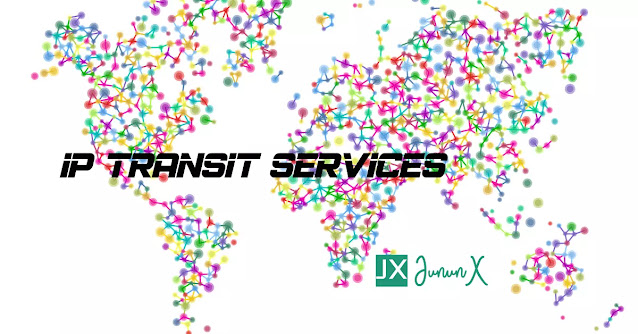The most important thing about internet connectivity is that all Internet Service Providers (ISP) or enterprises need to find a Network Access Provider (NAP) that can offer IP Transit services in an affordable way. The ISPs also have to make sure their NAP provides the level of service they're looking for.
01What is a Network Access Provider (NAP)?
As license holder of Internet Service Provider, all ISP should have partnered with license holder of Network Access Provider (NAP) in Indonesia. Why? because NAP will let the ISPs connected to the rest of the world.
NAP should provide reliable, high-quality access to the global internet for ISP's end customers in business or home. NAP takes pride in providing ISPs with fast and dependable services at affordable prices so they never have to worry again!
ISPs understand how much time and money goes into developing technology, which is why they will always do everything possible to prevent downtime on their network.
If anything does go wrong, rest assured that they fix it quickly so their internet service can get back up running as soon as possible without any delay or hassle.
Why is it important the NAP have a reliable, high-quality network at affordable prices for ISPs end customers in business or home?
ISPs need a network access provider that provides reliable and high-quality access to the global internet.
The worse nightmare of the owner of ISP is having their customers (ISP's end users) complain because they can't get connected, or if they do connect to the internet, it's so slow that it takes them hours to download a video.
In order to serve the Indonesian market more effectively, ISPs are seeking partners who have a nationwide fiber network that can help with the backbone connection and also provides a valuable connection to the data center.
The internet is becoming one of the most important channels for everyone to stay connected. In order for Indonesia to be recognized as a digital economy, it is necessary to improve the quality and reduce the cost of internet service.
To be able to make this happen, it is required that ISPs have partnerships with Network Access Providers, Fiber Optic Providers, and Data Center Providers, so new models can be developed where different operators share backbones and equipment resources.
This system will help provide high-capacity network services with greater reliability and security for all Indonesian and foreigners who stay in Indonesia.
How to find a reliable NAP provider
It is important to research the company and understand if they have experience in the fiber optic networking industry. To find a trustworthy NAP company, ISPs need to make sure that the NAP is transparent and has a good reputation for providing excellent service.
Once ISPs have found an IP transit services provider that the ISPs feel comfortable with, it's time to compare prices!
Here are the tips to find a reliable NAP provider in Indonesia:
#1. Make sure the NAP provider has a good reputation
To find reliable IP transit services, check to make sure the company you go with has a good history and is trustworthy. It's never a bad idea to have multiple opinions about companies, so ask around, read reviews online, and do research! You can ensure that the company provides excellent customer service—that's a great place to start your search.
#2. Get multiple quotes from different IP transit providers
Even if you're sure that you've found an excellent NAP provider, it doesn't hurt to receive more than one quote! It's important to compare the fees and services across different providers, especially if you're trying to narrow down your options. It's always a good idea to get multiple quotes from various companies so that you can make sure you have the best deal possible on IP transit services.
#3. Make sure a NAP provider offers high-security standards and a 99.9% network uptime guarantee
If you're planning on using your IP transit services for business, it's crucial that the company offers high levels of security. You need to make sure they have Great Firewall protection and offer industry-standard security features such as strict password policies, secure remote access software, anti-malware solutions, DDos logs, and advanced firewall protection.
#4. Choose a company with experience in providing IP transit services
Research the background of any potential provider to make sure they have experience working on your type of network (e.g., Metro Ethernet or Carrier Ethernet). If you need a NAP also for your partner in fiber-optic networks, then choosing a company experienced in fiber optics is a must.
#5. Look at price, fees & Internet connectivity requirements
You've done your research and you know the NAP provider you want to work with, so now it's time to get down to business: start price comparing! Once you've provided all of the necessary details about your IP transit service needs (internet volume, upload/download speeds, monthly bandwidth allotment), you can compare the price options and set your company up for success with an IP transit service.
#6. Be sure a NAP provider has equipment that works with your company's network needs
The NAP provider you choose should be able to meet all of your company's network requirements. To make sure the IP transit services will work seamlessly with your network, it's important to have a list of equipment and hardware that works with a particular carrier's infrastructure.
#7. Research any additional purchasing options offered by a NAP provider
If you need additional services such as last-mile cabling, design implementation, or support for your business's network infrastructure, then be sure to ask about any added costs. Some NAP providers offer one-stop shopping for a variety of options in addition to IP transit service which can come in handy if you're looking to save time and money.
#8. Make sure the NAP has a similar location of POPs and NOC
If you need to be close to the company's servers, then it might not make sense to choose an IP transit services provider that has its hardware located in another part of the country.
#9. Define your SLA with a NAP Provider
It's crucial that you share all of your business needs with a potential NAP provider before signing any paperwork. This way, you can make sure your SLA (service level agreement) is on point and there won't be any surprises down the line.
#10. Can the NAP offer me some extra services?
Asking about bonus services from a provider can help you to save money and gain some added value. Many times, NAPs will provide extra features for free, such as toll-free dialing, Fax over IP solution, backup service fee, or last-mile fiber optic services with an additional discount.
#11. Another crucial to be checked, are your NAP is a neutral provider? Do they have an ISP license?
We prefer having cooperation with NAP owned by a neutral player. It’s better for us because we can be assured that there is not any kind of routing manipulation and/or business dealing between the network operator and commodity providers in their controlling route to reach our customers.
There are cases where a consumer has been experiencing bad quality of service, but when they report it to the NAP, the NAP says they don’t have any problem. And suddenly the problems are gone when the consumer changes to another ISP without making a change in their IP transit provider.
Fair treatment is needed. As NAP, they need to be fair and professional in our service (transit) provision towards the IP transit providers.
IP transit is a commodity service that depends on business deals between NAP and internet service providers (ISP), so it’s important for them to deal with them fairly. In this industry, all decisions made are based on commercial interests.
If there are commercial interests involved, things will become more complicated and create an unfair position for one of them.
A neutral player with a NAP license will never give up a customer due to low balance because it will harm their reputation and business in the future. With them, we can work in a transparent fashion, where both parties know the costs and price for each package.
# 12. How long of ‘Contract term’ (in months) do they want to purchase?
Typically, ISPs don’t like the long-term contract where both parties need to make a big commitment. ISPs prefer short-term contracts, and let them decide when they need an upgrade or downgrade of their bandwidth requirements. In this way, there is no ‘lock-in’ situation for either party (ISP or NAP).
# 13. What kind of billing cycle do they prefer?
ISPs would like a flexible billing system, it might be a ‘pay per usage’ scheme; they don’t want to charge them for unused bandwidth. They prefer this model because it gives us flexibility in pricing.
# 14. Did the ISPs have any experience dealing before, and if that’s the case, are they happy with the NAP services?
This is an important question to ask. The NAP really wants to know what they can improve on. They want the ISPs to challenge their service so that the NAP can figure out how to make it better every day.
On the other side, choosing an ISP with a good deal is also important. The NAP doesn’t want a customer who complains about their services but continues to stay with them. It’s just not fair for both sides.
The target is both of them can maintain their relationship, and create more value for both parties.
# 15. What kind of SLA do ISPs prefer?
Service Level Agreement (SLA). This is the service level the NAP wants to guarantee to ISP's customers; including but not limited to performance, reachability, and uptime.
# 16. What kind of maintenance contract/service level agreement do the ISPs prefer?
Proactive maintenance provides 24/7 monitoring from the network operation center to identify and resolve issues proactively before impacting customer traffic. They’ll contact the customer in case of a major disruption.
So, there are 16 factors that should be taken into consideration when choosing a NAP as your provider of IP transit services for corporate or residential customers.
The Ideal Candidate of NAP partner
There are many NAP licenses in Indonesia, but only 7 providers own a fiber-optic network.
The list of major NAP in Indonesia who already own fiber-optic network are:
- Telkom Indonesia (Telkom)
- Indosat Ooredoo (indosat)
- XL Axiata (XL)
- Mora Telematika Indonesia (Moratel)
- IForte Solusi Infotek (iForte)
- Biznet Networks (Biznet)
- Mega Akses Persada (Fiberstar)
As an ISP, ISPs plan to do sales to the corporate market and residential. ISPs should build the last-mile or Home-Pass fiber-optic network to deliver their services or use third-party networks.
All the NAPs listed above, have last-mile services to the corporate market, but only one that has offered Home-Pass services to the residential market.
Bundling IPT services and last-mile services also is a great package for ISPs to grab the corporate market.
Fiberstar is a professional Network Access Provider, Fiberstar does not offer Internet Service Provider services, because they do not have an ISP license.
When ISP's purchase last-mile services from Fiberstar, it avoids any conflict of interest. Fiberstar’s ISPs will never have to worry that their customers will be hijacked. Compared to the other's 6 NAP, they all have Internet Service Provider licenses.
Fiberstar has around 600,000 home-pass that can be used by all ISPs to offer their internet services to the residential market. The other six NAPs also have their own Home-Pass but are used only for their own FTTH broadband business.
When we are making the decision to find a NAP partner that supports our Internet Service business, we have to pick a trusted partner who has reliable networks, business ethics, support to reach all our potential customers, and we are able to expand our fiber-optic network without significant investment or operation.



